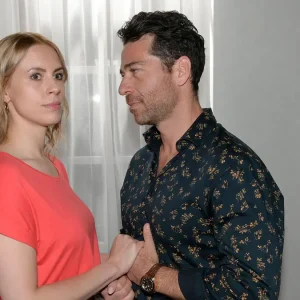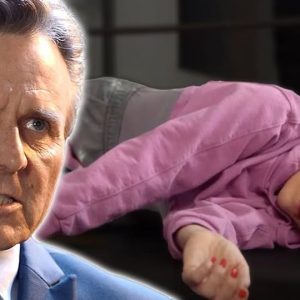## Gute Zeiten Spoiler: Als Katja das Restaurant betritt, erkennt sie ihr Date sofort… und es wird alles andere als romantisch.
Katja, our seemingly put-together protagonist, confidently strides into the upscale restaurant, her breath held in anticipation of her blind date. She’s meticulously prepared, the perfect dress, perfectly coiffed hair, and a carefully curated smile plastered on her face. The anticipation is palpable, a mixture of excitement and nerves. She scans the room, her eyes flitting from table to table, searching for any hint of her mystery date. And then she sees *him*.
But it’s not the charming, witty, successful man she was led to believe he’d be. The man sitting alone at a table near the window isn’t exactly a romantic disappointment – he’s a cataclysmic one. It’s… *Stefan*. Not just *any* Stefan, but *Stefan*, her ex-boyfriend, the man who left her heartbroken and humiliated six months ago. The man whose betrayal shattered her trust and left her questioning everything she thought she knew about love. The man she swore she’d never see again.
The recognition is instantaneous, a gut-wrenching jolt that sends a wave of nausea through her. Her carefully constructed facade crumbles, replaced by a mixture of shock, disbelief, and incandescent rage. The perfect smile falters, replaced by a grimace that betrays the turmoil raging within. She sees him too, his face registering a similar shock, quickly masked by a forced, almost pathetic attempt at a casual greeting.
The following scene plays out as a tense, awkward dance of uncomfortable greetings and forced pleasantries. Stefan’s attempts at explaining his presence are clumsy, unconvincing, and riddled with half-truths and desperate attempts at justification. He tries to convince Katja that this was a coincidence, a twist of fate, a completely innocent mix-up. But Katja, armed with her sharp wit and simmering anger, sees through his transparent lies.
Their conversation, rather than a blossoming romance, becomes a bitter recapitulation of their past. Old wounds are ripped open, past grievances aired, and the underlying resentment finally explodes. Katja, initially stunned into silence, finds her voice, unleashing a torrent of pent-up frustration and hurt. She doesn’t hold back, confronting him with his past actions, his lies, his betrayal.
The restaurant, initially a scene of romantic anticipation, transforms into a battleground of emotional warfare. The hushed whispers and polite clinking of cutlery are replaced by the sharp sting of Katja’s words and Stefan’s stammering, increasingly desperate attempts at self-defense. Other diners, initially curious, become increasingly uncomfortable, their eyes darting between the two combatants.
The date, far from being romantic, becomes a humiliating public spectacle. Katja, initially paralyzed by shock, finds unexpected strength and delivers a scathing monologue that leaves Stefan utterly speechless and deeply embarrassed. She lays bare his character flaws, exposing the superficiality of his charm and the depth of his deceit.
The climax sees Katja, empowered and vindicated, leaving Stefan humiliated and alone, his carefully crafted image shattered. It’s a triumphant, albeit bittersweet, victory for her. She’s not only survived the encounter but emerged stronger, having finally confronted her past and moved on, leaving Stefan to grapple with the consequences of his actions. The film ends not with a romantic flourish, but with a powerful message of self-respect and the importance of moving on from toxic relationships. The “date” becomes a pivotal moment in Katja’s journey of self-discovery and healing.





